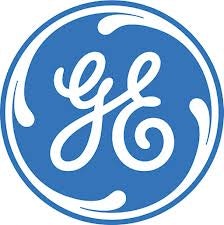
Neutron Jack
General Electric has had its ups and downs through the years, but there was a golden period under its famous CEO Jack Welch. The company’s performance reached new height after new height, hitting virtually every target management set out. The image of a company that could do no wrong had pretty strong supporting evidence.
Welch was a ruthless leader, cutting out waste and focusing on efficiency. He created a culture of success. For these things it is hard to fault him. However, under his watch there was an unseen cancer growing in the industrial giant—GE’s finance arm. Welch, however, retired before the cancer took its toll.
His handpicked successor, Jeffery Immelt, took the helm in 2000. He didn’t stop the cancer when he had the chance; however, cracks were beginning to show. The transition was smooth enough, but within a few years, management was missing some self-imposed targets. Even Welch was publicly critical.
The wheels came off when the financially led recession hit. The financial division had become so large that it nearly took the entire company down with it. GE even stooped so low as to take a government handout to help ensure its solvency. It was almost sad to watch these events transpire.
The Biggest Betrayal
All of this, however, wasn’t as bad as the company’s dividend cut in 2009. While the market clearly saw the cut coming, the so-called widows and orphans who had relied on GE’s distribution to help pay their way simply couldn’t deny the truth any longer. It was more than just a company struggling; it was a company that broke what many saw as a promise. That is the kind of betrayal from which it is hard to recover.
GE wasn’t the only company to do this. Citibank and Bank of America Corp (NYSE:BAC) both suffered mightily during the recession, cutting dividends and taking the government aid. Like GE their loans went south, fast. Like GE, they were both considered safe before the recession. Like GE, they are both tarnished in the minds of investors.
Citigroup, for its part, separated out a good chunk of its less desirable assets into an entity called Citi Holdings. That entity accounts for about a tenth of the company’s balance sheet. The nature of the securities pretty much assures that the company won’t be able to sell them and, thus, they are likely to drag on earnings for years. That lingering effect will likely remain a notable overhang on the bank’s stock price.
Of course the company has been making strides in righting itself, cutting costs and streamlining businesses. Despite these efforts, though, the company still pays only a nominal dividend. Unfortunately for Citi, it has to ask permission to increase its dividend, which also means investors will likely have to wait some time for notable dividend increases. Only a 1 for 10 reverse stock split in mid-2011 has kept Citi’s shares out of the single digits. This isn’t the kind of story that any but the most aggressive investors should consider getting behind.
Bank of America, too, remains mired in a funk. Some of the malaise is tied directly to the company’s acquisition of former mortgage giant Countrywide Financial in 2008, but not all of it. It wrote of billions of dollars for legal fees, settlement costs, and other assorted “one time” items in 2012. It will likely face more such costs in the near future, too, as it continues to try to move beyond the financial crisis.





